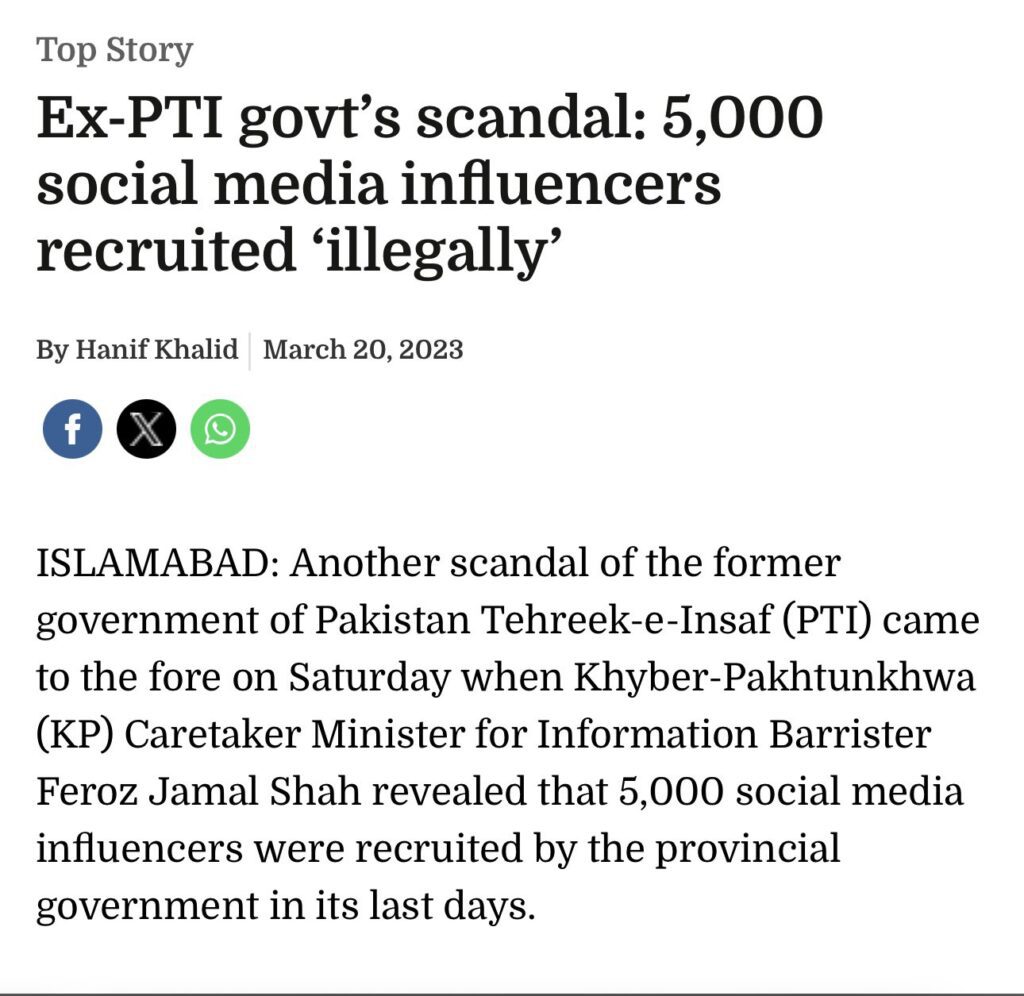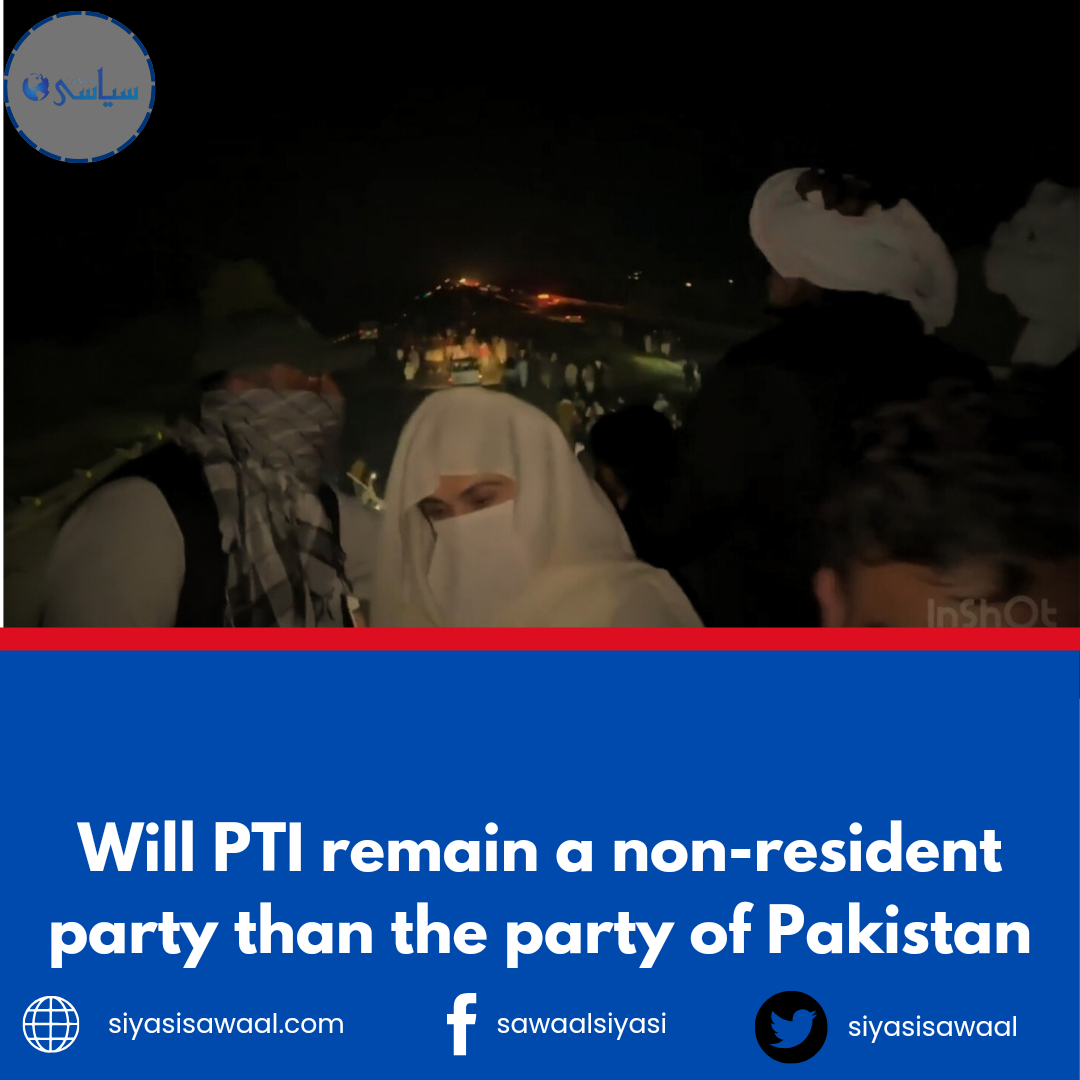The mobilization and participation of local and international support were at the very core of modern political campaigning. Great part to a variety of factors that include the extensive use of international PR firms, social media, and lobbying-all eventually enabling the party to maintain a robust presence in countries like the UK, the US, and parts of Europe.
PTI’s struggle to survive in Pakistan
Recent efforts by the PTI to mobilize its supporters in Pakistan reflect a steep decline in popularity. Party failed to mobilize workers in key province (Punjab) of Pakistan. Neither Punjab-which has conventionally been considered a citadel of the party nor Sindh, where PTI has tried to make inroads, saw the kind of mass mobilization that PTI had hoped for.
Recent political event, PTI has only brought some 6,000 to 7,000 supporters out into the field ground, largely from Khyber Pakhtunkhwa to come to Islamabad for a protest against the arrest of Imran Khan. This number is well below what PTI had expected.
The Role of Foreign Campaigns: Success in the UK, USA, and Europe
While, PTI is struggling to gain momentum inside the country, the party seemed to achieve success in foreign capitals, particularly in the UK, the US, and parts of Europe. The party organized big rallies in those countries, which drew impressive numbers from the overseas Pakistani. PTI has been able to conduct successful rallies abroad by strategically using international PR firms. The PR firms, with their core competency in managing political image of PTI to reach out to the international community.
The political campaigns that these firms have pursued have allowed PTI to project a message toward the large communities of Pakistanis. In fact, these campaigns have an image for the PTI as a hardy democratic movement which keeps fighting for its founder, Imran Khan, even after his imprisonment the courts helped him by many reliefs and providing 17 rooms in jail.
For example, PR heave of PTI in the UK has been done by front-page press releases and online engagement. There have been some efforts in the US by lobbying support from American lawmakers, where several leading figures urged Biden’s administration to press for the release of Khan. These campaigns were further amplified by PTI’s engagement with the global media, handled by these very international PR agencies.
Financial Expenditures on International Campaigns
Success of PTI foreign campaigns has come costly. The party has spent millions of dollar on PR firms, lobbying, digital campaigns, and social media marketing. Estimates of annual spending for such initiatives are believed to fall anywhere between $8 million to $10 million. This is considered to be rather expensive due to the intensity and multi-faceted nature of the campaigns that have been handled by foreign firms. Some of the potential expenses may include the following:

Public Relations & Media Campaigns
International PR media campaign can range around $5 million per year. International PR for PTI, especially for the UK and the US, has been vital in building its image outside Pakistan for the release of Imran Khan. These PR campaigns target both the Non-resident Pakistani and foreign governments and institutions with a view to putting pressure on the government of Pakistan.
Lobbying Firms
The PTI has spent money in the US in lobbying legislators with a view to support for their interests. It is said that retaining a lobbying firm may cost almost $1 million. The efforts have managed to keep PTI in the political scene when a party haslost workers in Pakistan’s internal politics.
Digital and Social Media Campaigns
Social media usage in the PTI political campaigns is considered as a requirement. The PTI has focused on online support of non-resident Pakistanis, mostly from US and UK. This is being actively promoted through targeted social media advertising and heavily paid influencers. About $2 million is spent every year to run such an online campaign being made by the party to keep it in the limelight.
The Impact of Paid Media and International Outreach
The contribution of both electronic media and social media has invested highly in paid media to ensure its message reaches wide audiences. This is not only about traditional forms of media, such as TV broadcasts and newspaper adverts but also about social media including Facebook, Twitter, Instagram, and YouTube-all platforms. The paid media helped PTI construct a narrative. Non-resident Pakistanis still believe in Khan as the rightful ruler of the country. However, despite effective foreign campaigns, these efforts have not gain any support in domestic politics of Pakistan.
The Decline of Domestic Popularity: A Sign of PTI’s Challenges
Failure to mobilize of impressive crowd even in strongholds like Punjab shows that PTI has lost its tight grip over the people at the grassroots. This is further supported by the fact that even after hectic planning of major rallies, failures to achieve D-Chowk, Islamabad, are repeated time and again. Economic difficulties of Pakistan might have exerted role in the decline of PTI popularity since people became more interested in survival rather than political activism.

Pakistan Tehreek-e-Insaf journey over the past year is facing increasing challenges within Pakistan but still managing to maintain a powerful presence on the USA, UK and Europe. The party’s international success, aided by hefty spending on PR firms, lobbying, and digital campaigns, demonstrates its ability to mobilize support from the non-resident Pakistani, particularly in Western countries.
While foreign campaigns by the party may continue to fire up non-resident Pakistanis, the ultimate future of Pakistan Tehreek-e-Insaf rests with the people of Pakistan. The question is: Can Pakistan Tehreek-e-Insaf now reconnect to its grassroots and restore its influence at home, or is it going to remain a non-resident party supported more by international media and PR efforts than the people of Pakistan themselves?
- PTI's struggle to survive in Pakistan
- The Role of Foreign Campaigns: Success in the UK, USA, and Europe
- Financial Expenditures on International Campaigns
- Public Relations & Media Campaigns
- Lobbying Firms
- Digital and Social Media Campaigns
- The Impact of Paid Media and International Outreach
- The Decline of Domestic Popularity: A Sign of PTI’s Challenges
